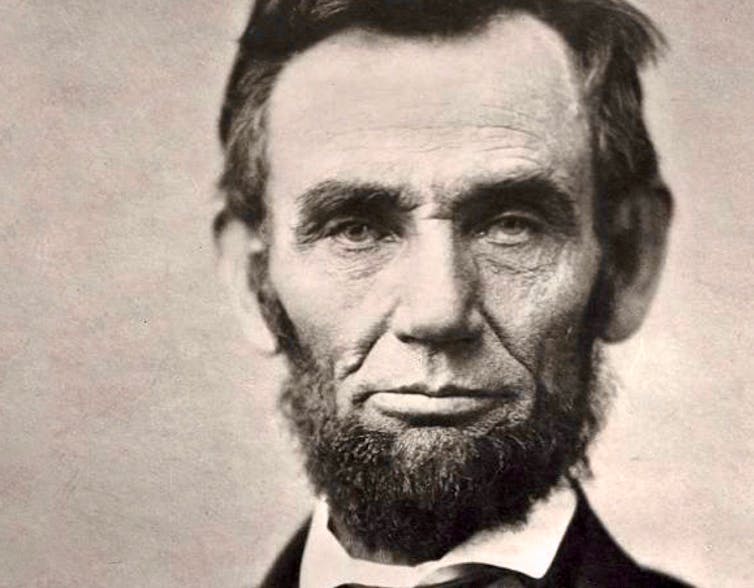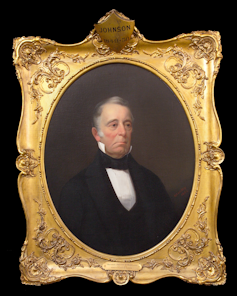When presidents lawyer up: A brief history

President Trump’s difficulty finding lawyers who will represent him in his current legal troubles tells us much about his leadership style and the advice he is willing to accept.
Some of his lawyers have resigned. Others – including such well-known Republicans as Theodore Olson and Dan Webb – have declined to represent him. At least one of Trump’s attorneys has ended up needing a lawyer himself.
The formal explanations of why lawyers have chosen not to represent Trump have included various business and client conflicts. But attorneys are often unwilling to take on a client who has a reputation for disregarding legal advice and freezing out, if not outright firing, lawyers who disagree with him.
Other presidents have had much better access to counsel in their times of troubles, in part because they stood to be far better clients, and in part because they valued professional ability over political allegiance.
What Nixon and Clinton shared
Both Richard Nixon and Bill Clinton turned to decidedly nonpartisan attorneys when they were facing impeachment.
During the Watergate investigation, Nixon was represented by James St. Clair, who had become famous in 1954 when he confronted, and ultimately humiliated, Republican Sen. Joseph McCarthy at the congressional hearings that helped end McCarthy’s career.
St. Clair had also represented an opponent of Nixon’s Vietnam policy, Yale Chaplain William Sloane Coffin, against charges of conspiring to interfere with the draft.
Clinton likewise retained an attorney better known for his legal savvy than his politics when he chose Robert S. Bennett. Bennett had earlier represented Caspar Weinberger, President Ronald Reagan’s secretary of defense, during the Iran-Contra scandal. Bennett had also served as counsel to a Senate ethics committee investigating five senators – four of whom were Democrats – for taking improper favors from the banker Charles Keating.
After being impeached, Clinton survived in office. Nixon resigned before he could be impeached. But they both had the benefit of dispassionate legal advice uninfluenced by political considerations.
Lincoln’s legal crisis
Abraham Lincoln, whom many consider our greatest president, had been a successful trial lawyer before his election. Despite his own considerable abilities, he often called on legal advisers to help him make important decisions, including some who were independent of his administration. Lincoln’s outside attorneys were not always his political supporters, but he listened to them anyway.
In the spring of 1861, Lincoln was facing an unprecedented crisis. Confederate forces had begun the Civil War when they fired on Fort Sumter on April 12, only five weeks after inauguration day. The president responded by calling up 75,000 new federal troops.

To reach Washington, D.C., from the north, however, the recruits had to pass through Maryland – a state that had not seceded, but which was otherwise a hotbed of Confederate sympathizers. On April 19, a militia regiment from Massachusetts was intercepted by a rioting mob on the streets of Baltimore, leaving four soldiers and 12 civilians dead.
Even more ominously, members of the Maryland militia, including a wealthy landowner named John Merryman, burned railroad bridges and cut telegraph lines, preventing other Union troops from reaching Washington.
Lincoln believed that emergency measures were necessary to arrest the saboteurs. His impulse was to suspend the writ of habeas corpus, which allowed those arrested to immediately challenge their detention before a federal court. Suspension would normally have required congressional action, but Congress was in recess and would not reconvene for months. And Lincoln was unsure of his constitutional authority to suspend the writ on his own.
Outside counsel for Lincoln
Secretary of State William Seward and Attorney General Edward Bates supported the suspension. But Lincoln was not satisfied with in-house advice.
He then consulted Reverdy Johnson, a prominent Baltimore lawyer with a national reputation as a Supreme Court advocate.
Johnson had represented Maryland in the United States Senate from 1845 to 1849, and he had served as U.S. attorney general under President Zachary Taylor. Most significantly, Johnson was a Democrat who had opposed Lincoln’s election in 1860.
Johnson had also represented the slaveholder in the Dred Scott case, which resulted in a notorious opinion by Chief Justice Roger Taney, holding that African-Americans had “no rights which the white man was bound to respect.” Lincoln despised the Dred Scott decision and called it part of a conspiracy to make slavery a national institution.
If anyone was likely to disagree with Lincoln, it was Reverdy Johnson. But the president still sought him out for advice.
As it turned out, Johnson strongly supported Lincoln’s efforts to save the Union from the secessionists, telling the president that it was his “obvious duty” to arrest saboteurs, and that suspending habeas corpus would be “perfectly constitutional.”
Lincoln issued the suspension on April 27.
On May 25, John Merryman was arrested by federal troops for burning railroad bridges in Maryland and imprisoned at Baltimore’s Fort McHenry. Merryman’s attorneys immediately petitioned Chief Justice Taney, then hearing cases in Baltimore, for a writ of habeas corpus to free their client.
Informed of Lincoln’s suspension of habeas corpus, Taney held that only Congress could suspend the writ. He pointedly ordered Merryman’s jailers to bring their prisoner before the court, which is precisely what a writ of habeas corpus prescribes.
Lincoln, and therefore the jailers, simply ignored Taney’s demand, and Merryman remained in military custody. Lincoln again consulted with Johnson, who reiterated his support for the suspension of habeas corpus and wrote a long legal opinion explaining his reasoning.
Published in Washington’s leading newspaper, the National Intelligencer, the opinion backed up Lincoln’s own statement on the suspension of the writ: “Are all the laws, but one, to go unexecuted, and the government itself go to pieces, lest that one be violated?”
Johnson did not agree with every order that Lincoln gave. He was critical of the decision to arrest men suspected of treason and subject them to trial before military tribunals.
After Lincoln was assassinated, Johnson represented Mary Surratt, who was tried, convicted and hanged for conspiring with John Wilkes Booth to murder the president. Lincoln himself would no doubt have encouraged Johnson to accept the Surratt case. He understood how good lawyers worked, and he was not afraid to seek advice and counsel from those who disagreed with him.
![]() This article was co-authored by Brian McGinty, an independent scholar and the author of “The Body of John Merryman: Abraham Lincoln and the Suspension of Habeas Corpus,” Harvard University Press, 2011.
This article was co-authored by Brian McGinty, an independent scholar and the author of “The Body of John Merryman: Abraham Lincoln and the Suspension of Habeas Corpus,” Harvard University Press, 2011.
Steven Lubet, Williams Memorial Professor of Law, Northwestern University
This article was originally published on The Conversation. Read the original article.